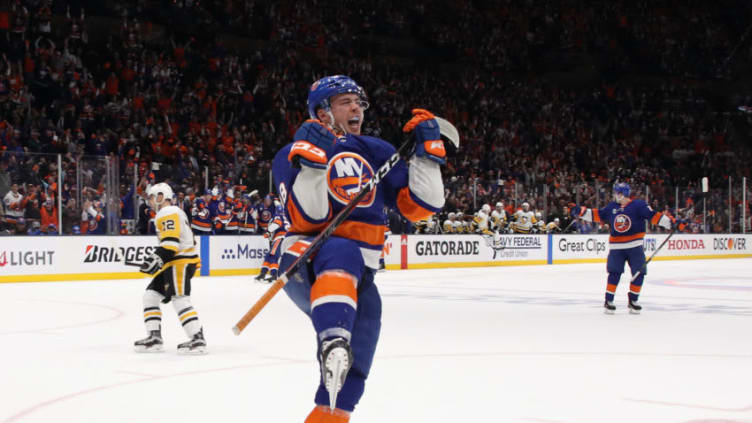New York Islanders How Qualifying Offers Work and 2019 RFAs

The New York Islanders will have to give their restricted free agents a qualifying offer if they plan on keeping them around. Here’s the minimum offer they’ll have to give out.
The New York Islanders have until June 25th, 2019 to provide qualifying offers to their restricted free agents. The Islanders have four pending restricted free agents going into the 2019 offseason: Anthony Beauvillier, Michael Dal Colle, Josh Ho-Sang, and John Stevens.
Essentially, the qualifying offer is a CBA mechanism that allows teams to retain the negotiating right for players whose contracts have expired but are not yet allowed to hit unrestricted free agency.
By tending a qualifying offer teams keep their rights to the first refusal on any offer sheet that an RFA might get in free agency. Here’s how it works.
How It Works
NHL teams have until June 25th or the Monday following the NHL Draft, whichever is later, to file qualifying offers for their RFAs. A qualifying offer is a single year standard player contract with a value that is calculated from the player’s previous base salary.
You can use CapFriendly’s handy Qualifying Offer Calculator to calculate a qualifying offer for any current RFA.
If the team submits a qualifying offer for their player, that team keeps their rights to first refusal on that player, for one year. What that means is the team can decide to match or take draft pick compensation in the event that the player signs an offer sheet with another club.
Restricted free agents, just like unrestricted free agents, are free to speak with and sign with any other team. (See section 10.2 of the NHL CBA):
Any such Player [RFA] shall be completely free to negotiate and sign an SPC with any Club, and any Club shall be completely free to negotiate and sign an SPC with any such Player,
A player has the choice to sign the qualifying offer or refuse it. Either way, the team keeps their negotiating rights for that player.
If the team doesn’t submit a qualifying offer for a player, he becomes an unrestricted free agent. It’s exactly what happened to Robin Lehner last season.
Isles RFA and Qualifying Offer
Great. That’s how qualifying offers work. How does this affect the New York Islanders and their four pending RFAs? If they get a qualifying offer from the Islanders who much will it be for?
*Qualifying offer is a two-way deal
John Stevens and his seven points this season and 19 in the last for the Bridgeport Sound Tigers might not be qualified. He’s a center so perhaps Lou wants to keep the undrafted former Northeastern alumn around.
The top three will certainly get qualifying offers. Lou has already confirmed that Josh Ho-Sang will be qualified (subscription required). I doubt either of them accepts the qualifying offer that is given to them and I doubt that any team is going to spend time recruiting any of them as a possible offer sheet target.
The offer sheet for three of the Islanders RFAs would be two-way deals. Dal Colle, Ho-Sang, and Stevens don’t have the required NHL experience to get a one-way offer.
Want your voice heard? Join the Eyes On Isles team!
The New York Islanders should re-sign all three (maybe all four) to low-level deals for no more than two years. There shouldn’t be any internal RFA drama for the Islanders. But maybe they try and snag one out from a cap-strapped team.